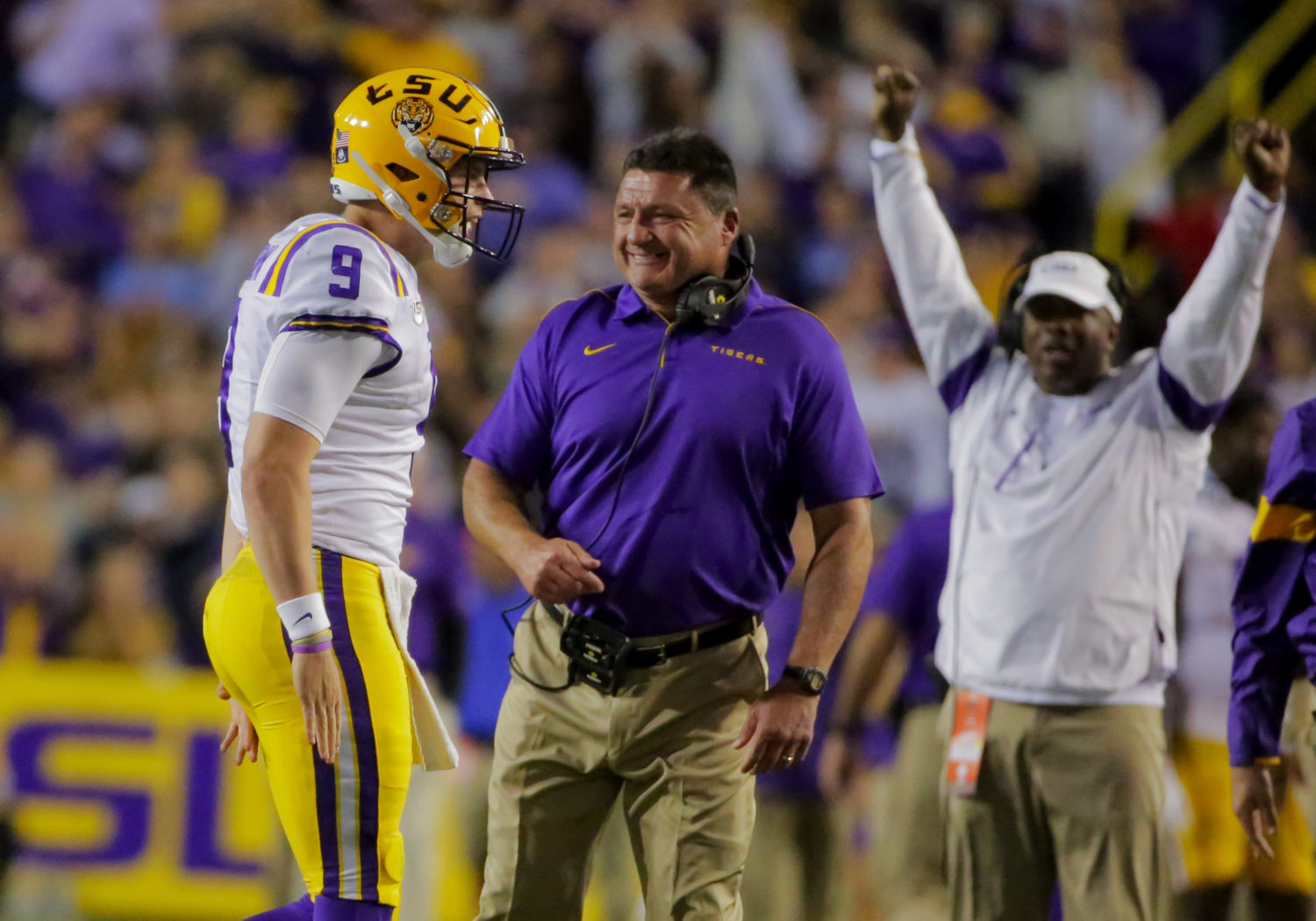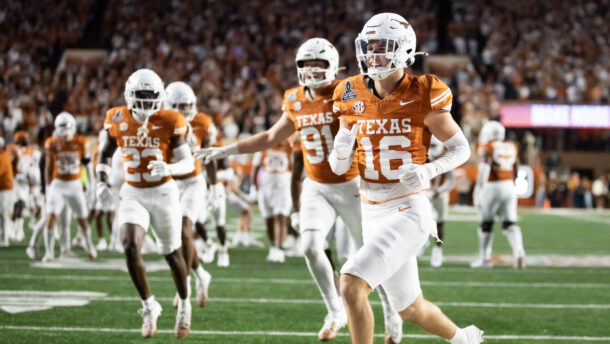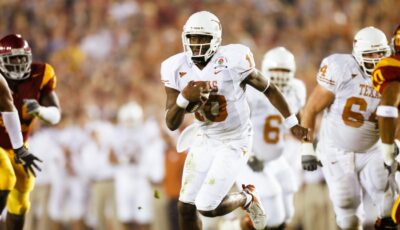
LSU football: Most important record for Burrow is win-loss mark
By Les East
Published:
Does it say more about Joe Burrow?
Does it say more about LSU?
Does it matter?
Burrow needed less than seven full games to break the LSU school record for touchdown passes in a season. He threw four in a 36-13 victory against Mississippi State on Saturday to give him 29, breaking by one the record shared by JaMarcus Russell and Matt Mauck.
The record that Burrow will leave behind after his senior season will be much harder to surpass than the one he broke.
He’s on pace to throw 50 by the end of the regular season, which would be a remarkable number. So remarkable, in fact, that it would tie Burrow for the fourth most in FBS history.
There are other remarkable numbers such as completion percentage, yards, touchdowns and interceptions.
Burrow has been completing right around 80 percent of his passes.
He has thrown a mere 44 incompletions, 25 of which have been followed immediately by a completion. He has thrown consecutive incompletions just eight times this season, three straight incompletions once. He has not thrown more than that in a row.
That’s why so many possessions have produced points, why there are so few three and outs for LSU’s offense.
Burrow’s touchdown total is very impressive and very important. But his decision-making, accuracy and efficiency are most impressive and all of that leads to the touchdowns.
The frequency with which he is throwing touchdowns is going to cause other records to fall. The LSU record for touchdown catches in a season is 12 by Dwayne Bowe. Justin Jefferson and Ja’Marr Chase have both caught nine touchdown passes and probably will both surpass Bowe’s record.
Terrace Marshall Jr. also was well on his way to surpassing with six touchdowns in four games before undergoing foot surgery after the win against Vanderbilt.
Marshall’s injury gave defenses the opportunity to zero in on two equally productive receivers instead of three, but that hasn’t slowed Burrow. In the 36-13 victory against Mississippi State he threw one touchdown each to Jefferson and Chase, but he also threw one each to Racey McMath and Derrick Dillon.
No. 2 LSU has a variety of dangerous receivers and Burrow has been adept at identifying the best matchups, picking out the best opportunity and delivering the ball decisively and accurately.
As long as he continues to do that the touchdowns will continue to come and so will the wins.
Granted, the bar for setting passing records at LSU had been set fairly low until Joe Brady arrived during the offseason and teamed with Burrow.
So the fact that Burrow cleared the touchdown bar so easily and figures to clear others easily as well has to be kept in context.
It wouldn’t be surprising if Burrow’s touchdown rate, completion percentage and other stats become somewhat less impressive in the coming weeks. He was remarkable last week against a really good Florida defense.
But he’ll face another very good defense next Saturday when Auburn comes to Tiger Stadium. Then after an open date he’ll take a crack at Nick Saban’s Alabama defense.
So the completions, yards and touchdowns might be a bit harder to come by.
On top of that, it might behoove the Tigers to develop a more consistent running game against some of these more challenging opponents.
They did that against Florida, rushing for 218 yards and scoring as many touchdowns on the ground as they did through the air (three).
For the season, LSU has scored almost twice as many touchdowns through the air (29) as it has on the ground (15). A more balanced offense would be detrimental to Burrow’s stats, but more conducive to the Tigers’ quest for an SEC championship and a College Football Playoff berth.
So, getting back to the original questions:
Burrow’s record-breaking seven-game stretch says a lot about him – and about LSU’s relatively modest history of passing the football.
But none of that matters as long as the Tigers keep winning.
Les East is a New Orleans-based football writer who covers LSU for SaturdayDownSouth.com. Follow him on Twitter @Les_East.







